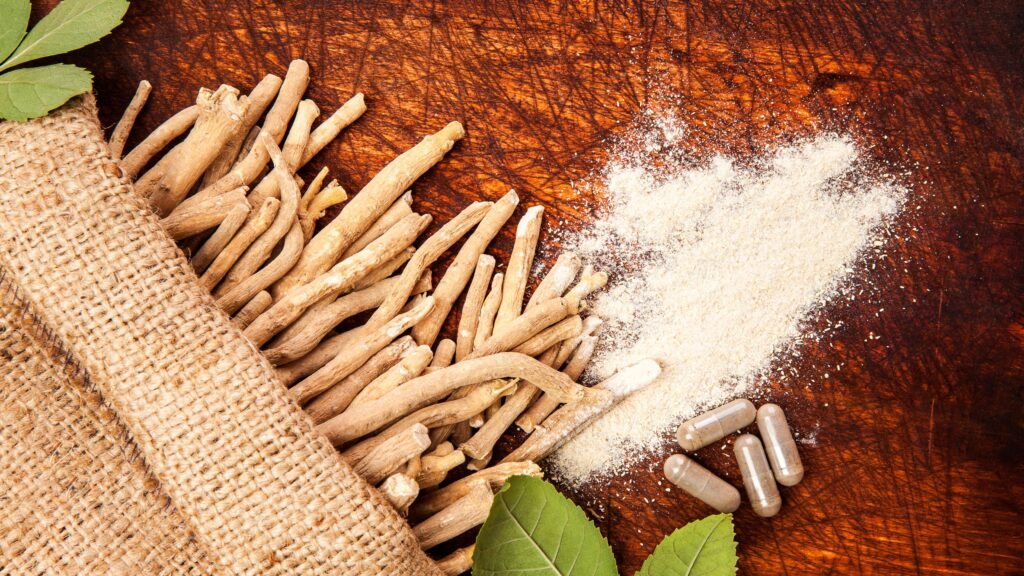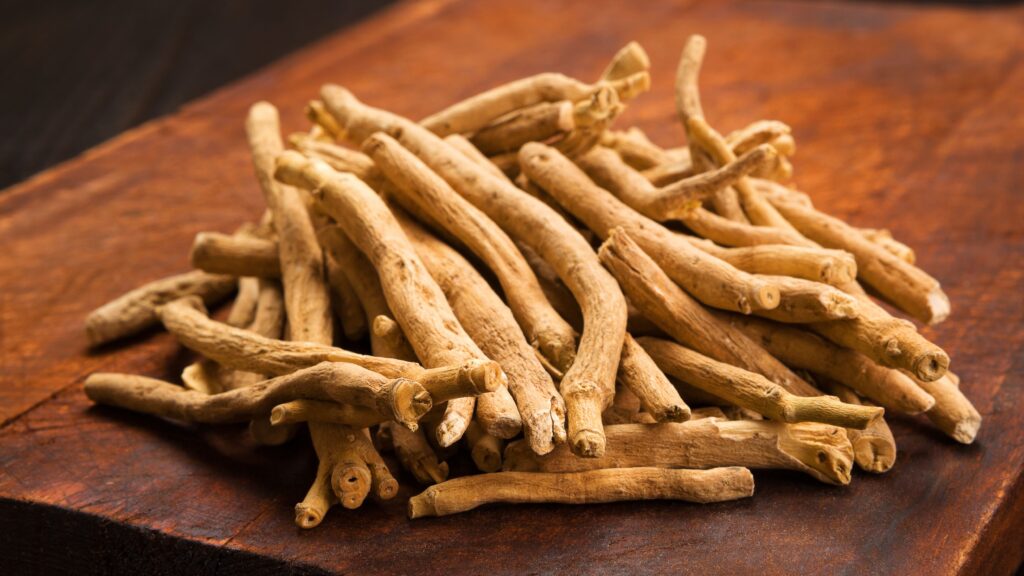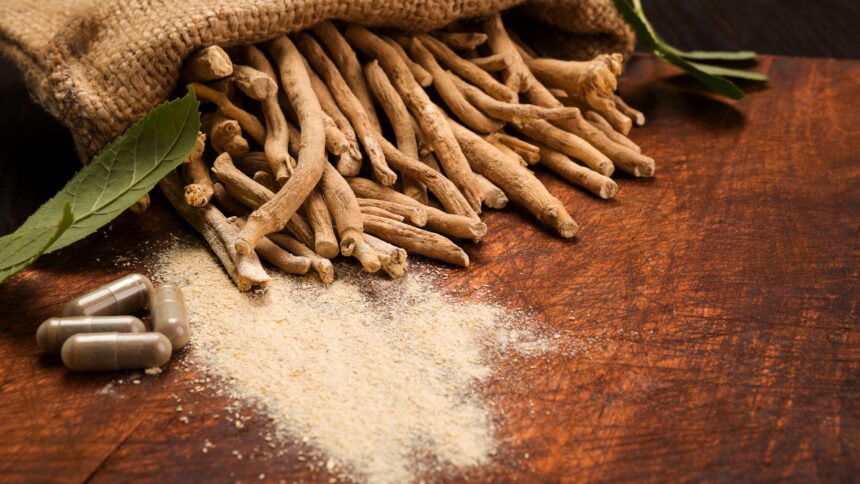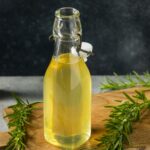Ashwagandha, a powerful adaptogenic herb, has garnered significant attention for its potential health benefits, particularly in boosting testosterone levels. Many individuals are curious about how much ashwagandha per day for testosterone enhancement is optimal. This comprehensive guide explores the appropriate dosage, scientific backing, and additional health benefits of ashwagandha.
Understanding Ashwagandha

Ashwagandha, also known as Withania somnifera, is a medicinal herb used in Ayurvedic medicine for centuries. It is renowned for its adaptogenic properties, which help the body cope with stress. Recent studies have highlighted its potential to enhance physical performance, reduce anxiety, and improve male fertility by boosting testosterone levels.
The Link Between Ashwagandha and Testosterone
Testosterone is a crucial hormone for both men and women, playing a vital role in muscle mass, energy levels, and overall well-being. For men, in particular, maintaining optimal testosterone levels is essential for reproductive health and physical performance. Research indicates that ashwagandha can significantly impact testosterone levels, but we should understand how much ashwagandha per day for testosterone to reap these benefits.
How Much Ashwagandha Per Day for Testosterone?
Recommended Dosage
The recommended dosage of ashwagandha varies depending on the form in which it is consumed—root powder, extract, or standardized supplements. Most studies suggest that an effective dose for boosting testosterone levels ranges from 300 mg to 500 mg of standardized ashwagandha extract taken twice daily.
Dosage Based on Scientific Studies
- 300 mg Twice Daily: A study published in the Journal of the International Society of Sports Nutrition found that men who took 300 mg of ashwagandha extract twice daily experienced significant increases in muscle strength and testosterone levels compared to a placebo group.
- 600 mg Daily: Another study conducted by the American Journal of Men’s Health reported that men consuming 600 mg of ashwagandha extract daily for eight weeks showed a notable increase in testosterone levels and improved sperm quality.
Factors Influencing Dosage
Several factors can influence the effective dosage of ashwagandha for testosterone enhancement:
- Body Weight: Heavier individuals may require a slightly higher dose to achieve the desired effect.
- Age: Testosterone levels naturally decline with age, so older individuals might benefit from a consistent dosage.
- Health Conditions: Existing health conditions or medications can affect how ashwagandha is metabolized in the body.
Benefits of Ashwagandha Beyond Testosterone Enhancement
Ashwagandha adaptogenic herb offers a multitude of other health benefits.
Stress Reduction
Ashwagandha is widely recognized for its ability to reduce stress and anxiety. It lowers cortisol levels, the body’s primary stress hormone, which can indirectly benefit testosterone production, as high cortisol levels can negatively impact testosterone.
Improved Athletic Performance
In addition to boosting testosterone, ashwagandha enhances physical performance. It increases muscle mass, strength, and endurance, making it a popular supplement among athletes and fitness enthusiasts.
Enhanced Cognitive Function
Ashwagandha has neuroprotective properties that support brain health. It improves memory, focus, and cognitive abilities, which can be beneficial for individuals looking to maintain mental sharpness.
Better Sleep Quality
Quality sleep is essential for overall health and well-being. Ashwagandha helps improve sleep quality by promoting relaxation and reducing insomnia, which can further support hormone regulation, including testosterone.
Potential Side Effects and Precautions
While ashwagandha is generally considered safe for most people, it is essential to be aware of potential side effects and precautions.
Common Side Effects
- Gastrointestinal Issues: Some individuals may experience stomach upset, diarrhea, or nausea, especially when starting with a high dose.
- Drowsiness: Due to its calming effects, ashwagandha may cause drowsiness in some people.
Precautions
- Pregnancy and Breastfeeding: Pregnant or breastfeeding women should avoid ashwagandha due to a lack of sufficient safety data.
- Autoimmune Diseases: Individuals with autoimmune diseases should consult their healthcare provider before using ashwagandha, as it may stimulate the immune system.
- Medication Interactions: Ashwagandha can interact with certain medications, including sedatives and medications for thyroid conditions. Always consult a healthcare provider if you are taking any prescription medications.
How to Incorporate Ashwagandha into Your Routine
To achieve optimal results, it’s crucial to incorporate ashwagandha into your daily routine effectively.

Forms of Ashwagandha
- Capsules/Tablets: Standardized ashwagandha supplements are available in capsule or tablet form, providing a convenient and precise dosage. This form is ideal for those looking to ensure they are taking the recommended amount of ashwagandha for testosterone enhancement.
- Powder: Ashwagandha powder can be mixed with water, milk, or smoothies. This form allows for flexible dosing but may have a strong, earthy taste that some people find unpalatable.
- Tincture: Liquid extracts or tinctures of ashwagandha can be added to drinks. They are easy to absorb and offer an alternative for those who prefer not to take pills.
- Tea: Ashwagandha tea is another way to consume the herb, although it may not provide a standardized dose. This form is typically used for its calming effects rather than precise health benefits.
Best Time to Take Ashwagandha
For optimal testosterone enhancement, it is advisable to take ashwagandha consistently and at the right times:
- Morning: Taking ashwagandha in the morning can help start your day with a boost in energy and stress resilience.
- Evening: Consuming ashwagandha in the evening may aid in relaxation and improve sleep quality, which indirectly supports hormonal balance.
Combining both morning and evening doses can provide a balanced approach, ensuring sustained benefits throughout the day.
Integrating Ashwagandha with a Healthy Lifestyle
Ashwagandha herb into a broader healthy lifestyle will maximize its benefits.
Diet and Nutrition
A balanced diet rich in essential nutrients supports overall health and hormone production. Foods high in zinc, vitamin D, and healthy fats are particularly beneficial for maintaining healthy testosterone levels.
Regular Exercise
Regular physical activity, especially resistance training and high-intensity interval training (HIIT), can naturally boost testosterone levels. Combining exercise with ashwagandha supplementation can lead to synergistic effects.
Stress Management
Chronic stress negatively impacts testosterone levels. Incorporating stress management techniques such as meditation, yoga, or mindfulness practices can complement the stress-reducing effects of ashwagandha.
Adequate Sleep
Ensuring adequate sleep is vital for hormone regulation. Aim for 7-9 hours of quality sleep per night to support overall health and testosterone production.
Conclusion
Ashwagandha is a potent adaptogenic herb with significant potential to enhance testosterone levels and overall well-being. Most studies recommend a dosage of 300 mg to 500 mg of standardized ashwagandha extract taken twice daily. However, individual factors such as body weight, age, and health conditions can influence the effective dose.
In addition to boosting testosterone, ashwagandha offers numerous other health benefits, including stress reduction, improved athletic performance, enhanced cognitive function, and better sleep quality. While generally safe, it is important to be aware of potential side effects and consult a healthcare provider if you have any underlying health conditions or are taking other medications.
Integrating ashwagandha into a healthy lifestyle that includes a balanced diet, regular exercise, stress management, and adequate sleep will maximize its benefits. By doing so, you can harness the full potential of this ancient herb to support your testosterone levels and overall health.
In conclusion, ashwagandha can be a valuable addition to your health regimen. By understanding the appropriate dosage and combining it with a healthy lifestyle, you can optimize your testosterone levels and enjoy a multitude of other health benefits.
FAQs:
Can women take ashwagandha for testosterone?
Yes, women can take ashwagandha, although its effects on testosterone are typically studied in men. For women, ashwagandha can help balance hormones, reduce stress, and improve overall well-being. It’s important for women to consult a healthcare provider before starting any new supplement regimen, especially if they have hormonal conditions or are pregnant or breastfeeding.
How long does it take to see results from ashwagandha supplementation for testosterone?
The time it takes to see results can vary. Some individuals may notice improvements in energy levels and mood within a few weeks, while significant changes in testosterone levels and physical performance may take 8-12 weeks of consistent supplementation. Patience and consistency are key when using ashwagandha for hormonal benefits.
Can Ashwagandha interact with other medications?
Yes, ashwagandha can interact with certain medications. It may enhance the effects of sedatives, thyroid medications, and immunosuppressants. If you are on any prescription medications, particularly for thyroid conditions or autoimmune diseases, it’s crucial to consult with your healthcare provider before starting ashwagandha to avoid potential interactions and side effects.




